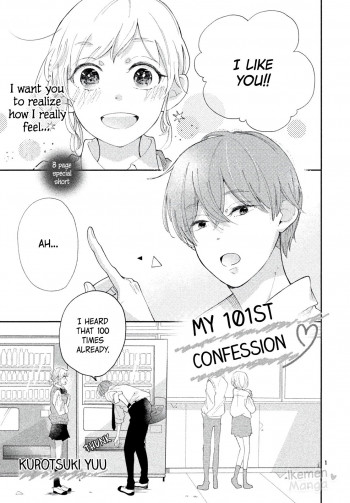Summary

Felix and the Spy
by P.S. Scott
Felix, the head of the Inferno’s secret service, has been lonely since his wife’s death. Intrigued by a new pen friends program, he begins corresponding with a mysterious war widow. Through the letters they share, he develops a deep bond with her. But when she asks to meet, Felix is in for a huge surprise.
Amara hasn’t been the same since her mother’s death. Crumbling under the shadow of grief, she has become volatile and withdrawn. So, when Mr. Garrett, a lonely widower begins writing to her, she finds solace in a kindred soul. With every letter, she opens up more and more. Until she discovers that Mr. Garrett is Felix, her boss.
Struggling to maintain a professional relationship amidst their growing attraction, Felix and Amara embark on a secret love affair. But as they spend more time together, they realize that love sometimes blooms in the darkest and most unexpected places.
.
Read
Felix and the Spy on http://kissnovel.net
Martial Peak Reviews
Felix and the Spy by P.S. Scott is a poignant exploration of love, grief, and the complexities of human connection. Set against a backdrop of personal loss and emotional turmoil, the novel delves deep into the lives of its two main characters, Felix and Amara, who find solace in each other through an unexpected correspondence. This book is not just a romance; it is a profound commentary on how relationships can blossom in the most unlikely circumstances, making it a compelling read for anyone who has ever navigated the murky waters of grief and longing.
Felix, the head of the Inferno’s secret service, is portrayed as a man deeply affected by the death of his wife. His loneliness is palpable, and it sets the stage for his decision to join a pen friends program. This choice is not merely a distraction; it is a desperate attempt to connect with someone who understands the weight of loss. Through his letters to Amara, a war widow herself, Felix begins to peel back the layers of his grief, revealing a vulnerability that is both touching and relatable. The author skillfully captures Felix’s internal struggle, making him a character that readers can empathize with. His journey from isolation to connection is beautifully rendered, showcasing the transformative power of communication.
Amara, on the other hand, is a character who embodies the chaos of grief. Since her mother’s death, she has become withdrawn and volatile, struggling to find her place in a world that feels increasingly alien. The introduction of Mr. Garrett, who is actually Felix, into her life through letters serves as a catalyst for her emotional awakening. As she opens up to him, readers witness her gradual transformation from a woman consumed by sorrow to someone who dares to hope again. Scott’s portrayal of Amara is nuanced; she is not just a love interest but a fully realized character grappling with her own demons. The duality of her character—both fragile and resilient—adds depth to the narrative, making her journey all the more compelling.
The themes of grief, connection, and forbidden love are interwoven throughout the story, creating a rich tapestry that resonates with readers. The letters exchanged between Felix and Amara serve as a powerful narrative device, allowing them to express their innermost thoughts and feelings in a way that face-to-face interactions might not permit. This epistolary format not only enhances the intimacy of their relationship but also underscores the idea that sometimes, it is easier to reveal oneself to a stranger than to those we know well. The tension between their professional roles and personal feelings adds an intriguing layer to the plot, keeping readers engaged as they wonder how the characters will navigate this precarious situation.
Scott’s writing is both lyrical and evocative, painting vivid images of the characters’ emotional landscapes. The dialogue, particularly in the letters, is rich with subtext, allowing readers to feel the weight of unspoken words and the longing that permeates their exchanges. The pacing of the novel is well-balanced; it allows for moments of reflection while also propelling the story forward. As Felix and Amara’s relationship deepens, the stakes become higher, leading to a climax that is both satisfying and thought-provoking.
One of the most striking aspects of Felix and the Spy is its exploration of how love can emerge from the shadows of despair. The author does not shy away from depicting the rawness of grief, yet she also highlights the beauty of finding connection in unexpected places. This duality is reminiscent of works by authors like Jojo Moyes and Nicholas Sparks, who also explore themes of love intertwined with loss. However, Scott’s approach feels uniquely her own, as she delves into the psychological complexities of her characters with a depth that is both refreshing and engaging.
The emotional impact of the novel lingers long after the last page is turned. Readers are left contemplating the nature of love and the ways in which it can heal even the deepest wounds. Felix and Amara’s story serves as a reminder that while grief can be isolating, it can also lead to profound connections that enrich our lives. The novel encourages readers to embrace vulnerability and to seek out the connections that can help us navigate our darkest moments.
In conclusion, Felix and the Spy is a beautifully crafted narrative that explores the intricacies of love, loss, and the human experience. P.S. Scott has created characters that are not only relatable but also deeply flawed, making their journeys all the more compelling. The novel’s themes resonate on multiple levels, inviting readers to reflect on their own experiences with grief and connection. For anyone seeking a heartfelt story that captures the essence of what it means to love and to lose, this book is a must-read.
























Reviews 0
Post a Reviews: